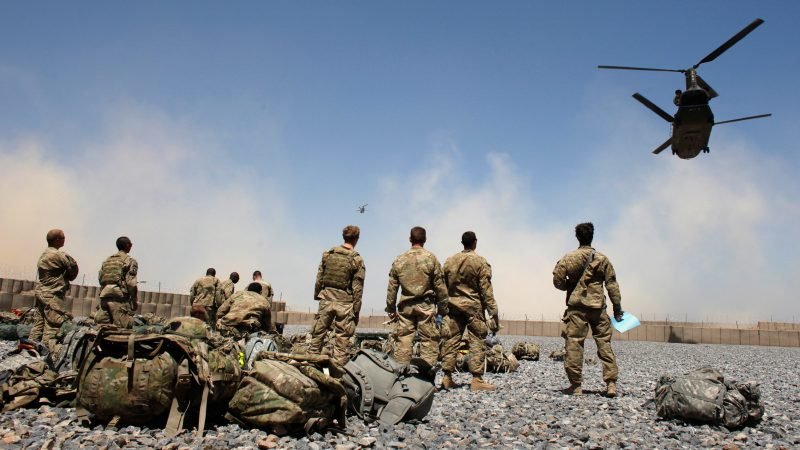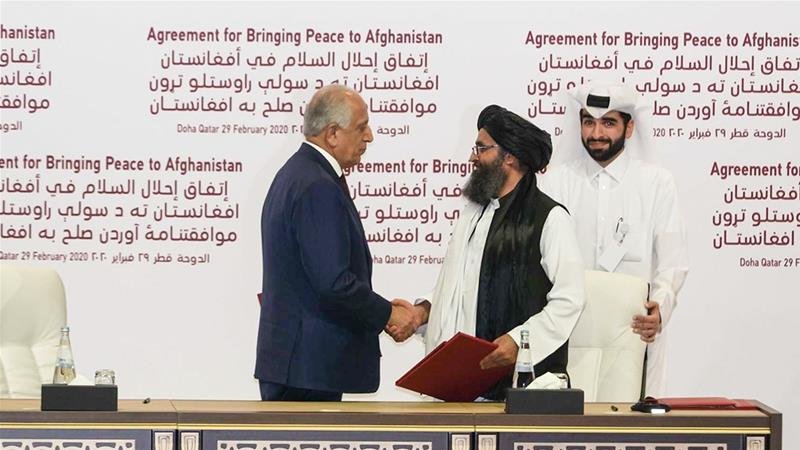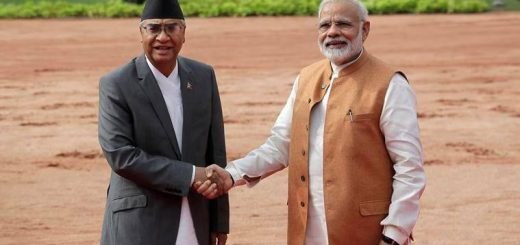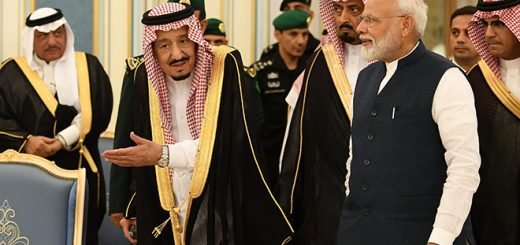The Afghan Conundrum

In light of the stark warning by NATO Secretary-General Mr Jens Stoltenberg, warns of the high price if troops leave Afghanistan. “We now face a difficult decision. We have been in Afghanistan for close to 20 years, and no NATO ally wants to stay any longer than necessary. But at the same time, the price for leaving too early or in an uncoordinated way could be very high.” Stoltenberg’s statement can be understood in context to the American piped dream to bring back its troop where it plans to halve them by January 15, 2021, and leaving a small troop of 2500 for the future withdrawal. President Trump’s hassleness has led NATO allies in Afghanistan to design counter-terrorism strategies despite Trump’s push for a peace deal with the Taliban. As Afghanistan is still a risk to international security and the new president-elect Joe Biden seems to follow the footprints of Trump, but with a better plan at hand is yet to be seen.
NATO and the War on Terror
Soon after the 9/11 attacks on New York and Washington, President Bush launched War on Terror to eliminate those responsible for the deadliest attack on US and Article 5 of NATO was invoked for the first time committing each member state to consider an armed attack against one member state to be an armed attack against them all.
NATO assumed the responsibility of the international security effort in Afghanistan in 2003, two years after a U.S-led coalition ousting the Taliban for harbouring Osama bin Laden, the former leader of Al-Qaeda. In 2014, NATO shifted its focus on training and advising Afghan security forces. Today NATO has stationed around 12,000 troops from different nations in Afghanistan helping to train and advise the national security forces. In Trump’s administration, America’s relations with NATO have been blemished with doubt and undermining NATO’s role. It is likely that Biden, unlike Trump, will try to restore America’s behaviour towards NATO and take into consideration NATO’s plan on withdrawal from Afghanistan.
Mr Stoltenberg is firm on saying even after the US withdrawal, NATO will continue its mission to train, advise and assist the Afghan security forces and commit to funding them through 2024.”

The February 29 deal
The US Taliban peace deal at Qatar in February 2020 was in line with President Trump 2016 election promise to bring back troops from the war-torn regions of Afghanistan and Syria. It was grounded in pragmatism and driven by US interests to end the so-called longest war in American history, which it believes is no longer worth the blood and treasure. The agreement calls for the return of all foreign troops from Afghanistan by May 2021 in return for counter-terrorism guarantees from the Taliban, which has pledged to negotiate a permanent cease-fire and a legitimate power-sharing agreement with the Afghan government. On the question of the peace deal, Justin Logan say’s “Trump hasn’t yet ended any wars, but he does seem to have moved on from the endless-wars mindset,”.
Kabul’s Concern
Within the Afghan government, there are concerns that the February 2020 deal has given more concessions to the Taliban and the last minute ceremonial visit by former US Defence Secretary Mark Esper to Kabul on Feb 28-29 for ensuring the Ghani government for a peaceful outcome of the deal to which it was not a party. But the Afghan government does not consider the US-Taliban agreement as to the basis for intra-Afghan dialogue. Kabul argues that Afghanistan was not a party to the deal and had not been consulted while the terms of the agreements were being negotiated between the US and the Taliban.
The deterioration of the security situation has angered the government and disappointed the ordinary people. The initial optimism regarding the peace agreement seems to be gradually diminishing as the Intra Afghan peace talks in Doha are jammed due to disagreements on the agenda of negotiations between the two sides. Kabul wants a slower withdrawal of American troops from Afghanistan and the possibility of renegotiating the terms of the U.S.-Taliban peace deal providing more flexibility for the Afghan government in its contentious negotiations with the Taliban in Doha.
With Biden’s election victory, Afghan officials have demanded a review of the peace process. Afghan Second Vice President Sarwar Danish said on November 9, “We hope that the process so far will be reviewed and re-evaluated under the new government in the United States,” and added that “As the government of Afghanistan has not signed this agreement. So not being a party directly we do not bear any responsibility as far as the deal is concerned.”

Democrat in the White House
Joe Biden, the President-elect, is unlikely to take a harsh step or go against the peace deal that was signed in Feb 2020 between the Taliban and the US. But unlike Trump, who pressed for withdrawing troops hastily before his re-election, Biden will have the time and space to assay and mend the deal his own way.
However, Biden’s view on Afghanistan during his term as US vice president is no different from President Trump’s. It was in 2009 when he opposed the idea of a troop surge in Afghanistan by the then-President Barack Obama. Taking forward the same stance of US war engagements Biden wrote in Foreign Affairs earlier this year, “It is past time to end the forever wars, which has cost the US boundless blood and treasure,” and bringing back the vast majority of our troops home from the wars in Afghanistan and the Middle East and narrowly define our mission to defeating the Al-Qaeda and Daesh.”
Experts are of the view that Biden will largely stay on the course set by the outgoing Trump administration but will hold the Taliban accountable for violence. In an interview to CBS in July, Biden said that he supports a sustained U.S. military numbering 1,500-2,000 on the ground largely for special operations against ISIS and other terror threats and at the same time the US bears “zero responsibility’’ if the Taliban is back in power once the US troops withdrawal is concluded.
Speaking at the Aspen Security Forum Michele Flournoy, cautioning the US administration against withdrawal before the deal is “solidified” would also be a mistake “because we’d basically be pulling the carpet out from under Afghan government partners, the Afghan women and the Afghan civil society, that we’ve fought so hard to help achieve a place at the table.”

The road ahead
The road to peace in Afghanistan is far from the construction as the parties to peace have a different version of future Afghanistan, on the one hand, is the US and Afghan Government which stress on the ideals of Democracy, women’s right, modern education, right to work, whereas on the other hand is the Taliban which wishes to establish an Islamic Emirates of Afghanistan which will be governed as per the Islamic system as mentioned in an op-ed in New York Times by Deputy leader of Taliban, Sirajuddin Haqqani. But it is important that the intra-Afghan talks continue no matter what happens over the coming days. Even amid the worst effects of war, the act of talking has the potential for bringing a better future to a war-torn country and its citizens.



















